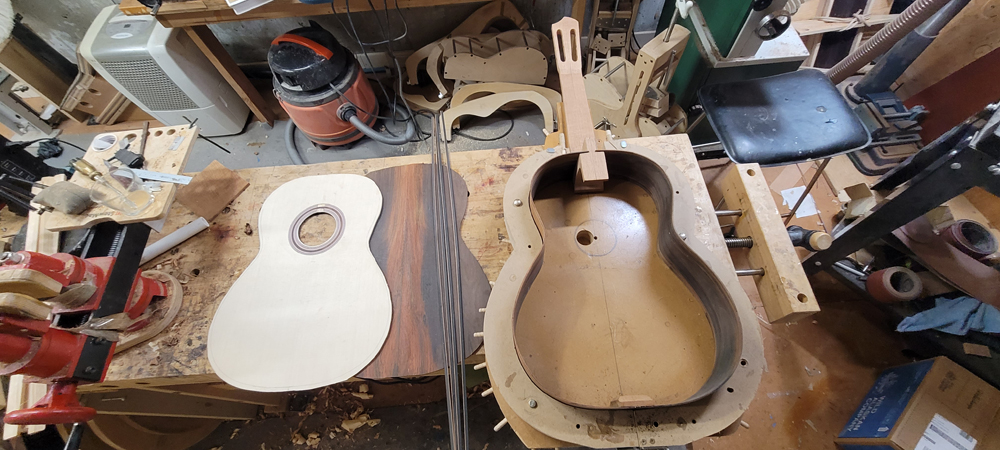
I use the back bracing plan from the plans in the Gore/Gilet Contemporary Acoustic Design and Build books. First step I planed some sitka brace stock to the correct height and then ripped in my bandsaw and thicknessed sanded in my belt sander a bunch back braces.



I put a gabled house shape on the braces using a homemade jig and my router table with a 27.5° bit installed

The properly sized brace stock is screwed on the jig, a pass is made on one side and then the brace is flipped and a pass is made on the other side.


Falcate braces are curved spruce braces. To allow the curves each brace is a lamination of three 1.7 mm strips. I use epoxy for the laminations.
I used a bandsaw to rip the laminates a bit thick. I like to get two braces from each of the laminations. I need relatively tall brace stock as on my classical guitars the braces are as tall as 10.5 mm so with a kerf accounted I need brace wood about 25 mm tall.

Thickness to 1.7 mm.

Spruce is stiff so I first heat bend to shape.


With three laminates bent, I clamped them in my mold and let them rest over night.

I also bent the three laminates for the secondary falcate braces.

The next morning using a combination of a band clamp and a few cam clamps I laminated the braces.


























































